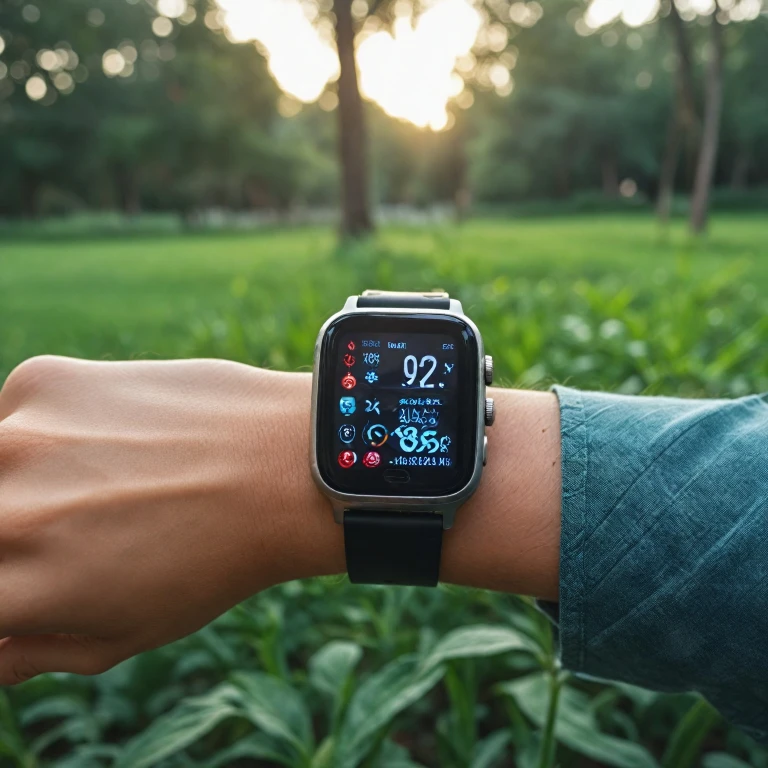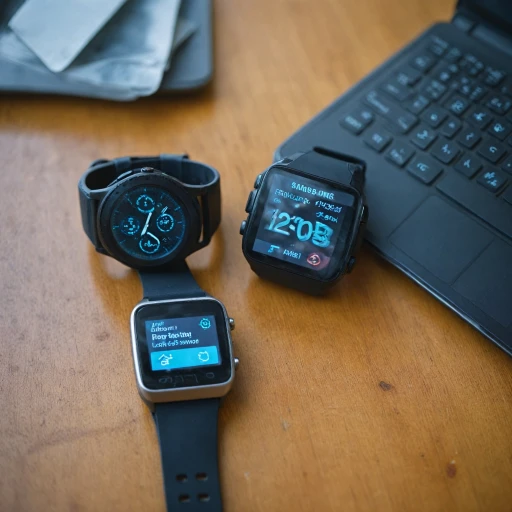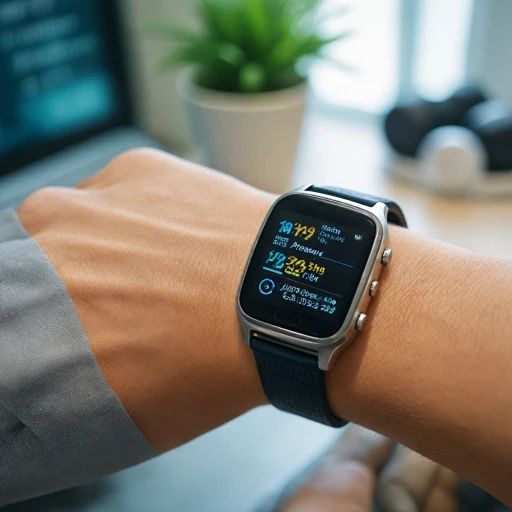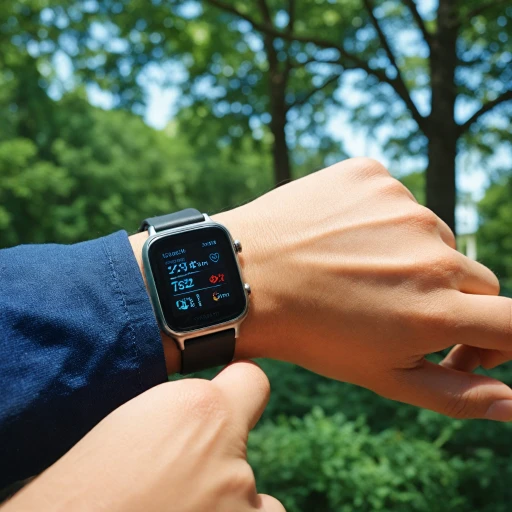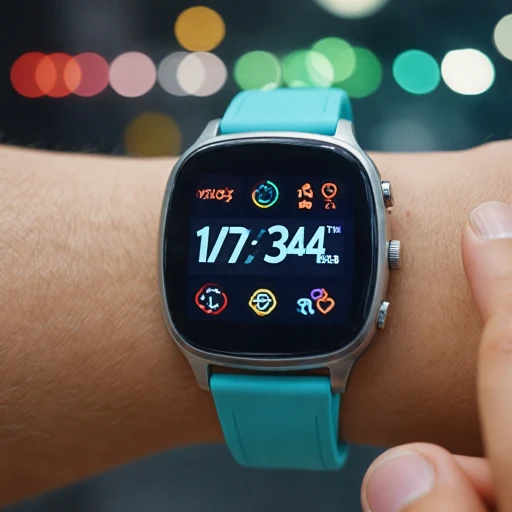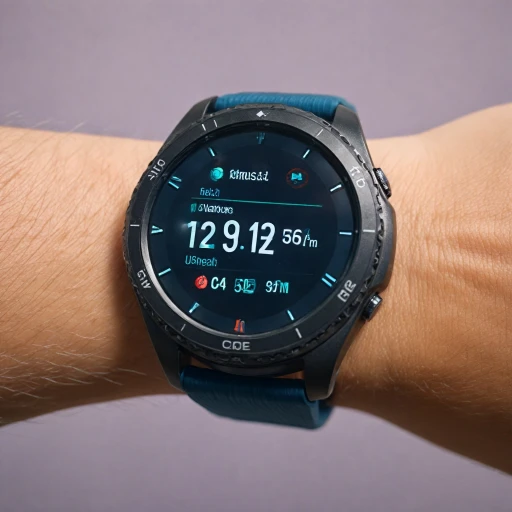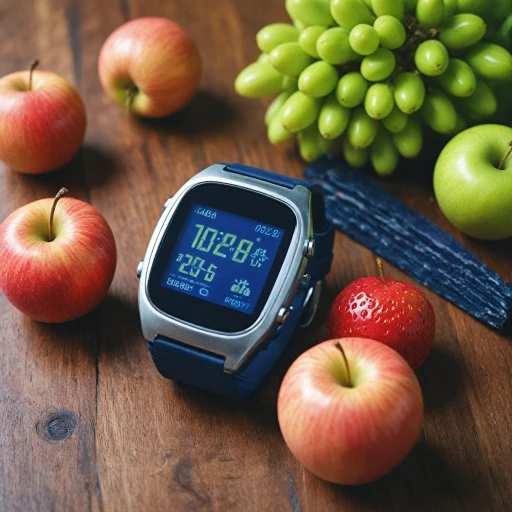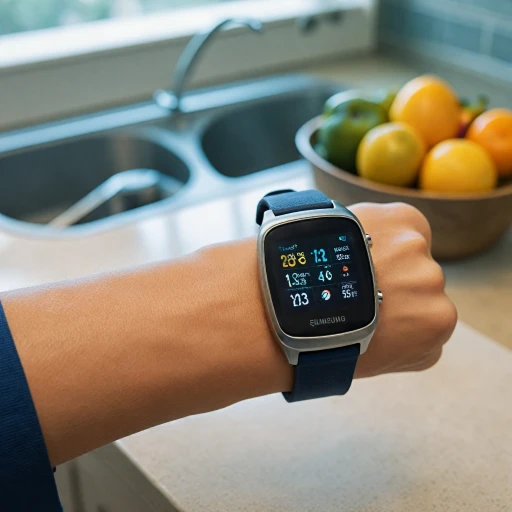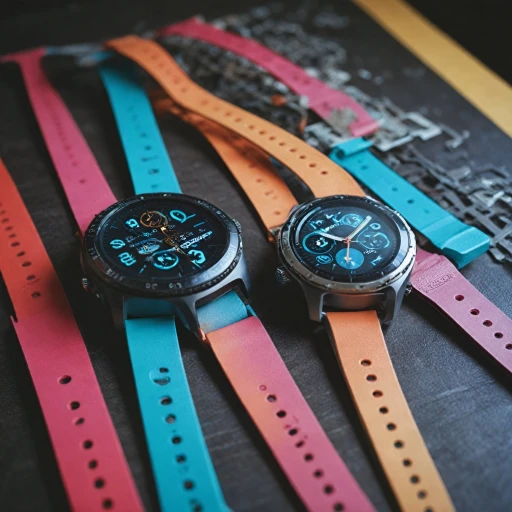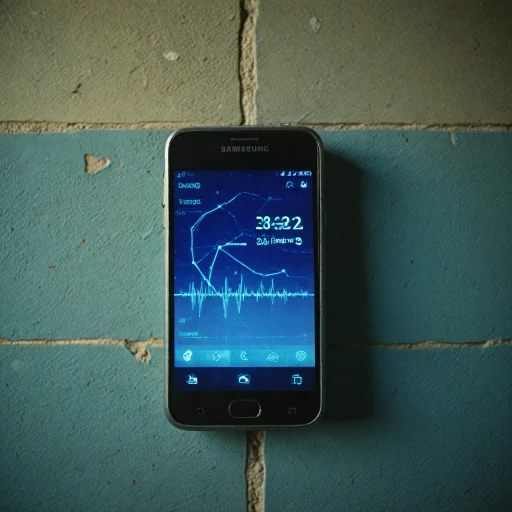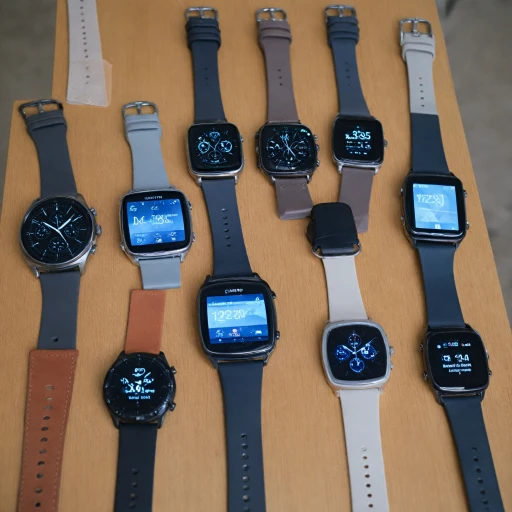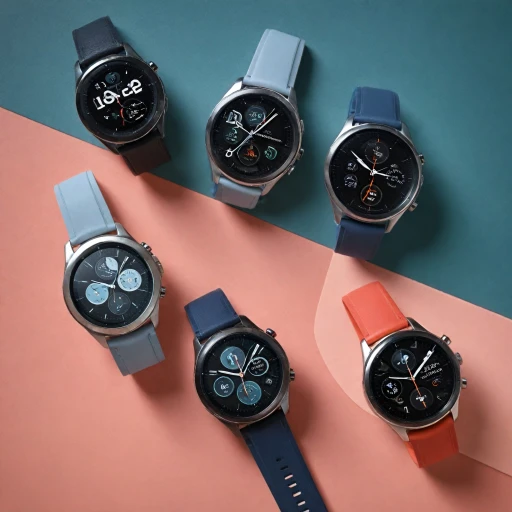
Understanding Smart Watch Health Features
Exploring the Features of Health Monitoring in Smart Watches
Smartwatches have evolved far beyond mere time-telling devices, now integrating a suite of health-focused functionalities. Among the most sought-after features are those enabling the monitoring of blood pressure, heart rate, and even ECG—offering a personal health assistant right on your wrist.
Many of these watches, such as the Samsung Galaxy Watch and the Apple Watch, come equipped with advanced sensors designed to monitor vital signs. But how do they actually work? Smartwatches employ optical sensors, which often use green LEDs to penetrate skin and detect blood flow. These readings assist in calculating your heart rate and can additionally offer estimates on blood oxygen levels.
When it comes to blood pressure monitoring, some watches require calibration with a traditional cuff monitor, whereas a few models can provide estimates independently. As technology progresses, we're beginning to see smart watches with increasingly accurate pressure monitoring capabilities, making them indispensable tools for those keeping tabs on their cardiovascular health.
The range of features also extends to connectivity with apps that compile health data over time. This tracking capability allows users to review their health patterns and share them with healthcare providers for a more comprehensive outlook. Popular models excel in syncing this data automatically, enhancing their utility for daily health management.
Understanding these features will be key when comparing price points and selecting the best smartwatch for your health needs. While some models cater to workout enthusiasts with extended fitness tracking features, others prioritize reliable health data monitoring with robust battery life for prolonged usage. As we progress, the integration between technology and health monitoring continues to push the boundaries of what's possible, promising a future where wearable health monitoring is seamlessly integrated into daily life.
The Technology Behind Monitoring
Unveiling the Technology: Monitoring Blood and Heart Functions
In the evolving landscape of wellness technology, smartwatches have become more than just sophisticated timekeepers. Their ability to monitor vital health metrics, such as blood pressure and heart rate, is underpinned by advanced technologies. These innovations have transformed ordinary smart timepieces into indispensable health companions. Blood pressure and heart rate monitoring in smartwatches rely on sensor technology that tracks physiological signals with precision. Optical heart rate sensors, often in the form of photoplethysmography (PPG), use LEDs to penetrate the skin and detect variations in blood volume, enabling the measurement of heart rate. For those seeking comprehensive heart health data, watches with electrical sensors, like the ECG feature found in high-end models, provide more detailed insight by tracking the heart's electrical activity. Tracking and analyzing health data doesn't end with on-wrist measurements. Companion apps integrated into devices, such as the Samsung Galaxy Watch or Apple Watch, enable users to review their vitals, analyze trends, and receive health notifications in real-time. These apps facilitate the tracking of heart rate fluctuations, blood oxygen levels, and even sleep patterns, all of which contribute to a deeper understanding of one's health. Despite these technological marvels, it's essential to consider factors like battery life and watch pricing when choosing the best smartwatch for monitoring health. Reviews often highlight the balance between features and battery performance, with some users prioritizing longer battery life for continuous monitoring, particularly overnight for sleep tracking. In the pursuit of the best blood pressure and heart rate monitors, pressure watches have made health monitoring accessible to more people through varying price points and functionalities. Smartwatches from brands like Samsung, Apple, and others compete to offer accurate health tracking while ensuring user engagement through enhanced apps and seamless notifications. As the development of smartwatch technology continues, future innovations promise to refine the precision of health measures and improve user health management. This paradigm shift in how we monitor our health has the potential to empower individuals to take charge of their well-being more than ever before.Comparing Popular Smart Watches
Top Contenders in the Market
When it comes to selecting the best smartwatch for health monitoring needs, several leading brands have made significant advancements. The market for fitness trackers and smartwatches has exploded, focusing on features like blood pressure monitoring, heart rate tracking, and ECG capabilities. Here, we'll compare some of the top contenders that stand out for their health-monitoring features.
- Apple Watch: Known for its advanced health features, the Apple Watch offers ECG functionality, blood oxygen measurement, and robust heart rate monitoring. Its integration with the Apple Health app makes it a popular choice for those within the Apple ecosystem. However, it is often noted for its higher price point.
- Samsung Galaxy Watch: The Samsung Galaxy Watch series boasts a comprehensive health suite, including blood pressure monitoring and heart rate analytics. Samsung’s Health Monitor app enhances the tracking capabilities, and ongoing software updates continually improve its performance. Its battery life is also commendable in comparison to some other high-end watches.
- Fitbit Watches: Long known for their fitness tracking capabilities, Fitbit has incorporated health features such as sleep tracking and heart rate monitoring. Recent models also include blood oxygen sensors. Fitbit devices are often praised for their user-friendly interface and decent battery life.
While each smartwatch offers unique advantages, the choice usually hinges on factors like brand loyalty, budget, and specific health monitoring needs. Reviews highlight how well these devices integrate with other tech, the ease of use of their health tracking apps, and the precision of their sensors for monitoring pressure, heart rate, and more.
Considerations in Selection
- Battery Life: A crucial aspect, especially for regular heart and pressure monitoring. Longer battery life means more continuous tracking without frequent recharging.
- Price: With prices ranging from affordable to premium, consider balancing cost with the features you prioritize.
- Health Ecosystem: Whether an Apple Watch or a Galaxy Watch, integration with the broader health ecosystem can offer a seamless experience for tracking and analyzing health data.
In conclusion, assessing the best smartwatch with your health needs and lifestyle is vital, whether that's for sleep, ECG monitoring, or daily blood pressure readings. Researching current reviews and understanding the technology behind these devices can aid you in making an informed decision.
Benefits for Everyday Health Management
The Advantages of Daily Health Management With Smartwatches
The integration of health monitoring features in smartwatches has revolutionized how we manage our well-being daily. For those keen on tracking various health metrics, including blood pressure and heart rate, these smartwatches function as compact health centric devices.
- Instant Feedback: The ability to access immediate health data allows users to adapt their lifestyle choices. For instance, detecting elevated heart rates during a stressful moment can prompt relaxation techniques.
- Comprehensive Tracking: Many smartwatches come equipped with sophisticated sensors capable of assessing heart rate, ECG, and even blood oxygen levels. The Galaxy Watch and Apple Watch series, among others, excel here, providing detailed insights into your heart health.
- App Integration: Health monitoring apps streamline this data into easy-to-read formats. These apps offer personalized health suggestions based on consistent tracking, enhancing user engagement and accountability.
- Sleep Analysis: Monitoring sleep patterns provides insights into your sleep quality, which is crucial for overall health. Devices with extensive battery life, such as the Samsung Galaxy Watch, ensure uninterrupted tracking.
- Affordability and Diversity: From premium models like the Apple Watch to more budget-friendly options, there’s a device for every price point. Each offers unique balance of functionality and user experience.
While these smartwatches offer remarkable convenience and accessibility, they should complement, not replace, professional medical equipment and advice. Regular consultations with healthcare providers remain essential for a comprehensive view of your health status.
Challenges and Limitations
Overcoming Obstacles in Smart Watch Health Monitoring
Smart watches with health monitoring capabilities offer a plethora of benefits, but they also face several challenges and limitations that users should be aware of. As the popularity of devices like the Galaxy Watch and Apple Watch continues to grow, understanding these limitations can significantly impact your purchasing decision. Firstly, the accuracy of blood pressure monitoring in smart watches can be inconsistent. While these pressure watches provide a convenient way to measure blood pressure on the go, they are not always as precise as traditional blood pressure monitors. Variations can arise from wrist positioning, movement, and the particular technology used by each brand. Another common challenge is battery life. The average battery life of a smart watch depends heavily on the usage of health tracking features, especially continuous heart rate monitoring and ECG apps. While some fitness trackers offer extended battery life, the more features in use, the faster the battery drains. Therefore, assessing your needs and how frequently you plan to use monitoring features can help in choosing a watch with optimal battery performance. Price is also a critical consideration. Although advanced health tracking features like best blood pressure monitors and rate monitors are highly desirable, they often come at a premium. Evaluating whether these features justify the additional cost compared to other smart watches can help navigate through the reviews effectively. Lastly, smart watches with blood oxygen monitoring and sleep tracking can provide valuable insights into your health. However, software limitations and the accuracy of the data recorded in these apps can sometimes be questioned. The calibration of these sensors and the algorithms behind them are continuously being improved, yet it's important to stay informed about what your smartwatch can and cannot reliably measure. Despite these challenges, the continuous innovation in heart rate technology and health tracking offers promising enhancements. Companies like Samsung and Apple are tirelessly working towards overcoming the current technology hurdles, promising better accuracy and more reliable health insights in future generations of their smartwatches.Future Innovations in Smart Watch Health Monitoring
Looking Ahead: The Future of Smartwatch Health Monitoring
The world of smartwatches is evolving rapidly, with continuous advancements aimed at enhancing health monitoring capabilities. As technology progresses, we can expect even more sophisticated features in future devices. Let's explore some potential innovations that could redefine how we monitor our health with these wearables.
One of the most anticipated developments is the integration of more advanced sensors. These sensors aim to provide more accurate readings of blood pressure and heart rate, addressing some of the challenges and limitations mentioned earlier. For instance, future smartwatches might incorporate non-invasive glucose monitoring, which would be a game-changer for individuals with diabetes.
Battery life is another area ripe for improvement. As users demand more features, the need for longer-lasting batteries becomes critical. Innovations in battery technology could lead to smartwatches that require less frequent charging, making them more convenient for continuous health tracking.
Additionally, the development of more comprehensive health apps could enhance the user experience. These apps might offer personalized health insights and recommendations, leveraging data from various health metrics such as sleep patterns, blood oxygen levels, and ECG readings. This could help users make informed decisions about their health and lifestyle.
Moreover, as artificial intelligence (AI) and machine learning continue to evolve, we can expect smartwatches to become more adept at predicting health issues before they arise. By analyzing trends in heart rate, blood pressure, and other vital signs, these devices could alert users to potential health risks, allowing for early intervention.
Brands like Apple Watch and Samsung Galaxy Watch are likely to lead the charge in integrating these innovations, given their track record of pioneering health monitoring features. As competition increases, the price of these advanced smartwatches may become more accessible, allowing a broader audience to benefit from cutting-edge health tracking technology.
In conclusion, the future of smartwatch health monitoring looks promising, with numerous innovations on the horizon. As these devices become more sophisticated, they hold the potential to revolutionize how we manage our health, making it easier and more efficient than ever before.

